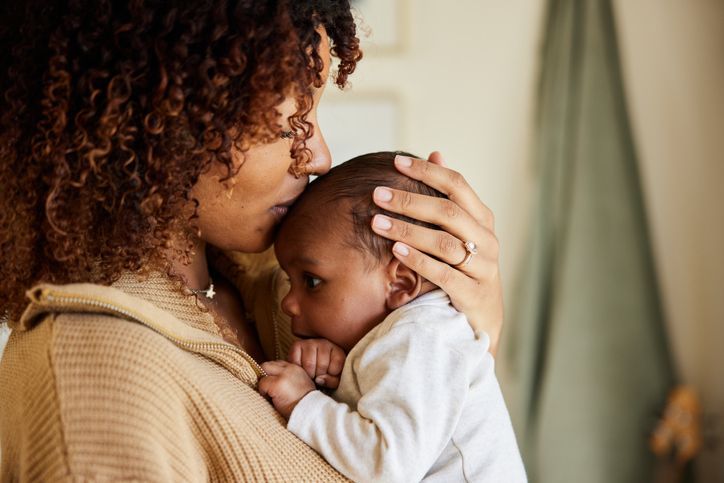Parenting Plan for Infants: Birth to 9 Months
Research has shown that infants can have strong relationship with multiple caregivers and this is seen as a protective factor by the infant...

As discussed in the previous blog post “How a Child’s Developmental Age Can Impact the Parenting Plan”, we discussed how the Association of Family and Conciliation Courts (AFCC-Ontario) created the Parenting Guidelines in accordance with a child’s age and development stage. These guidelines are meant to help parents and professionals create the best child-focused and realistic parenting plan according to their circumstances. As a reminder, a parenting plan is a plan created by former partners who have separated, and the focus of the plan is to determine how the child(ren) will be raised. This includes decision-making responsibility, and parenting time.
In this post we will discuss how the parenting plan should be created if there is a newborn infant. In this case, the definition of an infant is from birth to nine months. Studies have found that infants grow and learn at a fast pace. From the age of two to seven months, infants are able to recognize and grow psychologically attached to caregivers who provide care regularly. As they grow, the infant will play and have stimulation with the adult. They recognize that the adults who provide them with regular care will continue to provide for them and that their needs will be met by the adults they are with. Caregivers need to have the emotional availability and the skills to care for the infant and understand the needs of the infant. Studies have shown that consistent and positive care in a child’s life is important for their emotional and brain development. Research has also shown that infants can have strong relationship with multiple caregivers and this is seen as a protective factor by the infant.
When creating a parenting plan, if one parent is the infant’s primary caregiver and the other parent has not dealt with the infant regularly, and has not developed the capacity to care for the infant nor developed a relationship with the infant, it is important for the parent to do so. The parent must be able to develop a relationship with the infant, and develop the skills to care for the child before they are able to care for the infant on their own. It is important that the parent has short periods of frequent contact in order to develop a connection and familiarity between the infant and the parent. The primary caregiver needs to support this connection, and should understand that it is in the child’s best interest and is creating healthy child development. The parent should visit the child for a few hours at the primary caregiver’s home for short parenting time regularly. During this time, the parent needs to be involved in caretaking activities such as feeding, playing, soothing, and putting the infant to sleep. Once a bond develops, the parenting time may extend to longer hours and overnight stays. There are recommendations that an infant should be breastfed for the first 6 months, but some believe that it will impact the parenting time for the other parent. However, there are accommodations that can be made for the other parent who is not breastfeeding. For instance, the non-breastfeeding parent can feed the infant though a bottle.
It is important that parents communicate with each other about the infant’s needs and routines such as feeding and soothing the baby. Parents should have a communication log to exchange after each parenting time. This log will have information on the infant’s eating, sleeping, health and other developments and milestones that need to be shared. If the parents are unable to communicate about the infant, or if the parent cannot gain the skills to care for the infant, then the infant may need to stay with the primary caregiver. However, the other parent will need to maintain regular contact with the infant. If the parties are in conflict, a third party may need to assist in transitioning the infant from one parent to another, as infants are impacted by this conflict. It is important that either parent is not away from the infant for more than a few days as infants develop a preference for caregivers. To understand the needs of the infant, parents may find it helpful to consult with pediatricians or parenting professionals. If parents are unable to communicate, or the infant is not accepting of the changes between the parents, it may be necessary for the infant to stay with the primary caregiver while the other parent maintains regular contact.
You can find a link to the Parenting Guide here:
https://afccontario.ca/wp-content/uploads/2021/12/AFCC-O-Parenting-Plan-Guide-Version-2.0-December-2021-.pdf. You can find the parenting plan template here:
https://afccontario.ca/wp-content/uploads/2021/12/AFCC-O-Parenting-Plan-Template-Version-2.0-December-2021.pdf.
To note, the above should not be taken as legal advice, and if you have any questions or concerns about your case please speak to a lawyer. To find out how we can help you with your matter, please visit our website at https://www.grantleelaw.ca/ or call us at 905-315-6837 to book your consultation now.







